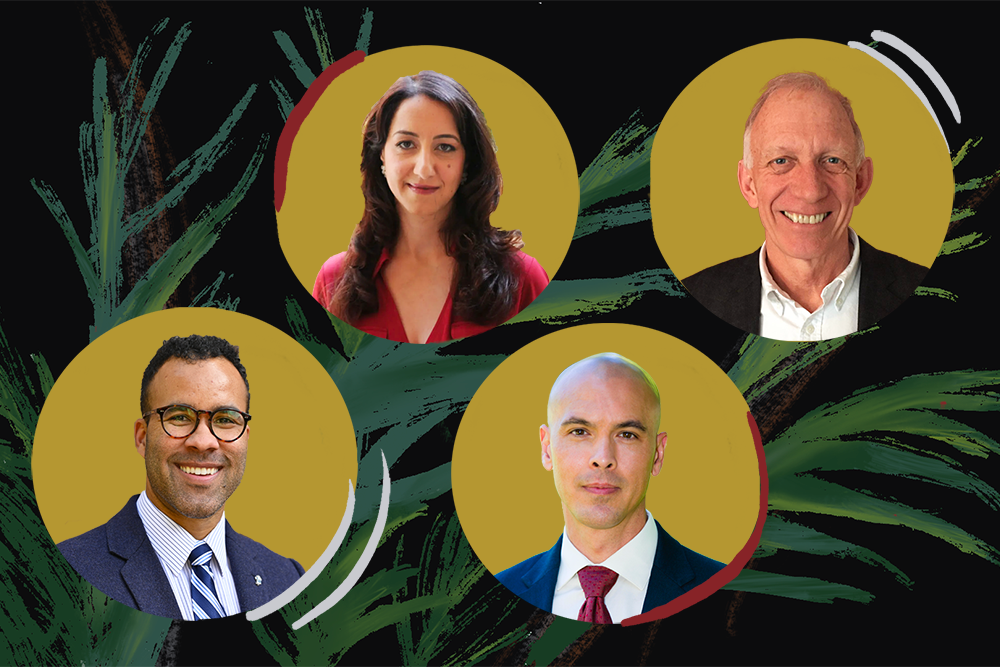
Illustration by Samantha Morales-Johnson. Clockwise from top left: Farnaz Fassihi, Robert E. Schmidle, Noël Lipana, and William Sturkey.
It’s easy to pin responsibility for war on political leaders or soldiers who commit the worst atrocities, from rape and torture to bombings of civilians and ethnic cleansing. But experts note that, because of technology and other factors, modern conflicts in particular “[blur] the lines among soldiers and civilians, winners and losers.” And the injuries that accompany war—moral as well as mortal—reverberate for generations and create far-reaching ripple effects. What responsibility do citizens living in a democracy hold for a war enacted in their name? Does the burden change if they were born or immigrated after a war began? Or if they themselves served in the government, supported the government, or protested the government?
Lieutenant General (ret.) Robert E. Schmidle, Jr., Air Force veteran and social worker Noël Lipana, and Farnaz Fassihi, journalist and United Nations Bureau Chief at the New York Times, visit Zócalo to discuss what it means to bear responsibility for war and its atrocities, and why that matters.
“How Should Societies Remember Their Sins?” is a two-year editorial and event series supported by the Mellon Foundation. Blending scholarly essays and personal stories, we will explore how societies around the world collectively remember their transgressions and make attempts at repair, and how we might imagine new paths forward.
The Takeaway
‘It’s Difficult to Win Hearts and Minds When You’re Holding a Gun’
When War Becomes the Means of Governing, Civilians, Soldiers, and Veterans Lose
With wars playing a crucial role throughout history in shaping American influence and character—and with present-day conflicts devastating countries such as Ukraine and Yemen—Zócalo convened a panel to probe the …






